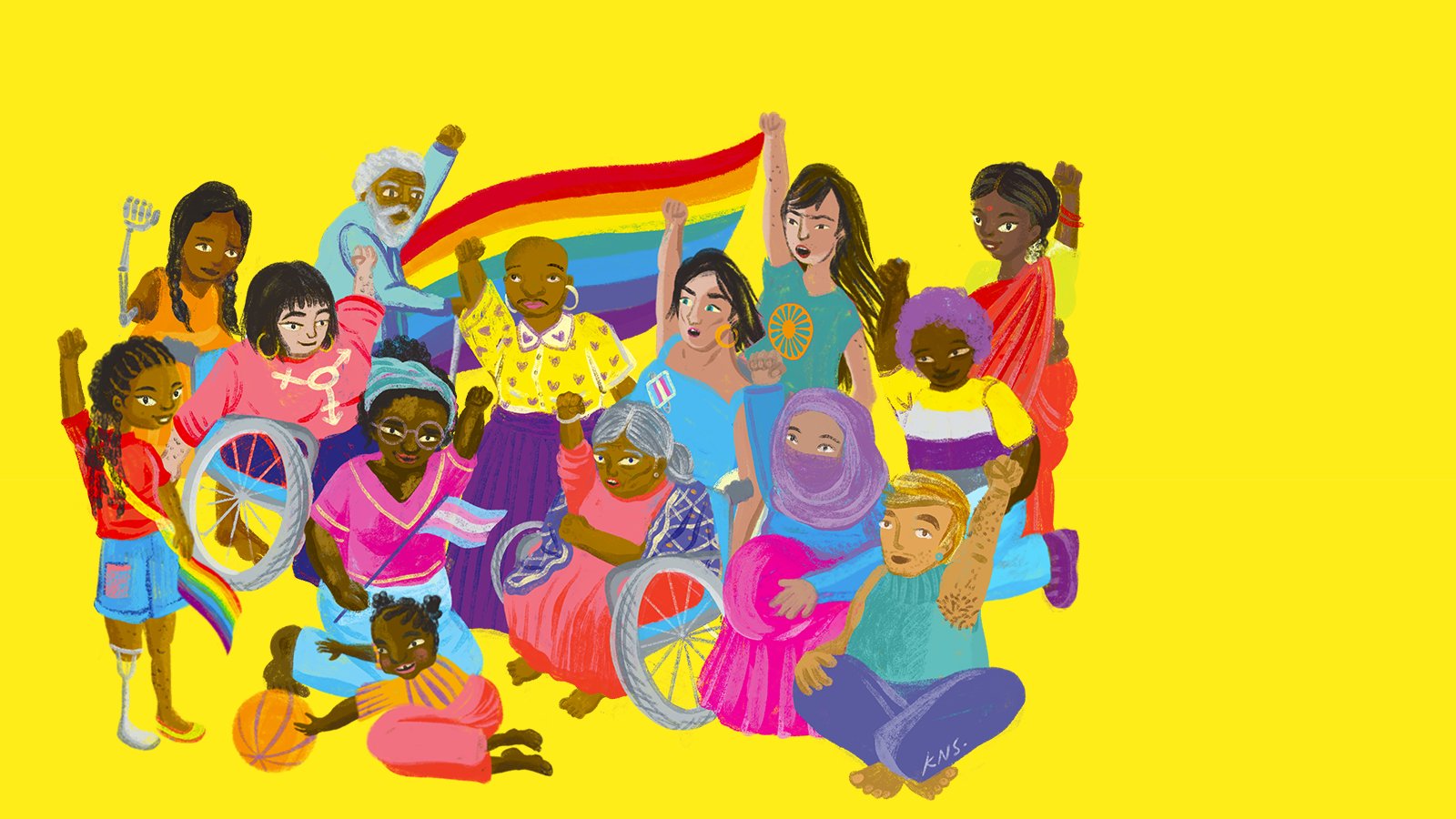The Transformative Power of Intersectionality
How can intersectional approaches to reducing inequalities be applied in practice? Eleven of our partner organizations from around the world addressed this question. Their experiences, suggestions and insights have now been captured in an e-booklet on Intersectionality for anyone working to promote social justice.
Eleven completely different organizations from around the world, funded by the Robert Bosch Stiftung to explore intersectionality in practice and to exchange ideas on a regular basis: this was the concept for the Support Program "Reducing Inequalities through Intersectional Practice" that started in 2020. Partner organizations working on different aspects of inequality and with different approaches received funding to explore and deepen their intersectional practices. In a year-long facilitated and co-designed learning format partners were invited to share issues and challenges they encountered when working with an intersectional approach.
“Intersectionality is key to understanding and tackling inequality in all its complexities. For us as funders, that means we need to listen, learn, improve, accept to fail – and do it better.”
With the program having ended, an e-booklet was created to explore “The Transformative Power of Intersectionality”. In several interviews and contributions, it offers insights into the intersectional practices of partners and the reflections, insights and demands that emerged from the program. With this publication, the Robert Bosch Stiftung wants to increase visibility for successful intersectional approaches in social change work and contribute to the widespread application of intersectionality in practice.
THE TRANSFORMATIVE POWER OF INTERSECTIONALITY
The e-booklet is available in English, German and Spanish for download.
In 10 chapters, it addresses intersectionality in different contexts:
- Intersectionality & its principles
- Intersectionality & inequality
- Intersectionality & policy
- Intersectionality & how we understand it in practice
- Intersectionality & language
- Intersectionality, power & community
- Intersectionality & artificial intelligence
- Intersectionality & migration
- Intersectionality, workplaces & wellbeing
- Intersectionality & philanthropy
FAQ INTERSECTIONALITY
In 2020, the Robert Bosch Stiftung initiated the grant program "Reducing Inequalities through Intersectional Practice" under the thesis that an intersectional approach is essential to effectively reduce systemic inequality. Within the program, the foundation supported eleven partner organizations around the world to deepen and broaden the intersectional focus of their work.

